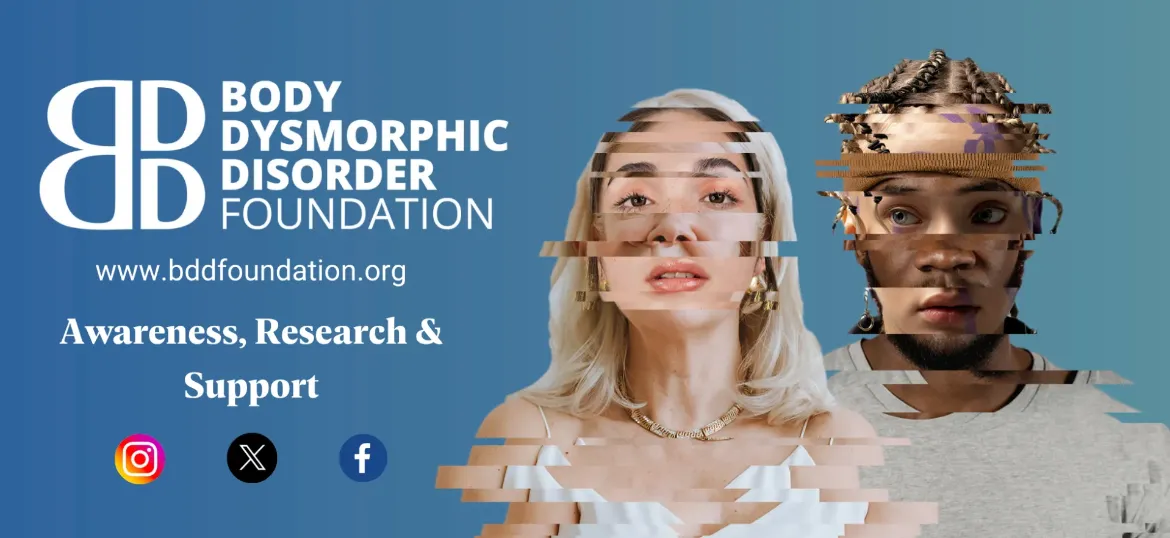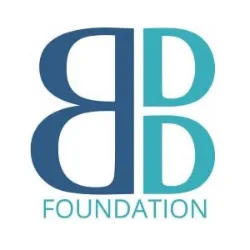Scarlett’s Fundraiser for the Body Dysmorphic Disorder Foundation
Scarlett Curran
My Story
Thanks for visiting my fundraiser for The BDD Foundation, a charity which I am raising money for by completing the London Marathon 2025 on April 17th.
BDD is a mental health disorder which I was diagnosed with in January 2022 but have suffered from for a number of years. The impact BDD has on my life has made various things more difficult, including socialising, working and everyday things, such as showering and eating. However, the biggest impact of BDD has been that I have not had the ability to attend university. I have dropped out of a Fine Art degree and have taken two gap years, as I could not attend lectures, socialise with friends or feel like I could function at the level I wanted to. As is the case with many people who have BDD, I was having multiple showers a day, spending hours getting ready and avoiding busy, social environments often. Similarly, I would complete my work in the art studios at night when no one else was likely to be there and I would sleep through the day. This was to avoid other students but also because of low mood caused by my BDD.
I can spend many hours thinking about multiple aspects of my appearance which feel ‘ugly’, 'wrong' or 'mismatched'. I often experience very uncomfortable intrusive thoughts and strong urges to act out certain compulsions, whether these be physical or mental acts. This also makes it hard to carry out usual activities like meeting friends or studying as I can be late or find it very difficult to leave the house due to a belief that I shouldn’t be seen by others. This happens even when I am looking forward to seeing people or intend to go somewhere and can happen at the last minute, making leaving the house feel extremely hard. At times, this can lead to isolation, as I am likely to avoid certain situations which trigger anxiety.
Similarly, mirrors and photographs also feel challenging as they can lead to intense feelings of disgust, shame and panic. This is especially difficult as my face and features of concern seem to change from day to day. Depending on the mirror or photo, my features can look distorted or even appear to have improved slightly. This makes travelling hard as new mirrors can be triggering because they are in different lighting or can be much larger than I am used to at home.
At the moment I am working hard at The Maudsley’s CADAT unit to manage the distress caused by BDD, with the aim of expanding my focus and life again.
By completing the Marathon and fundraising for the Foundation, I am hoping to learn to look at my body with more compassion. I am hoping to do this by being more appreciative and grateful for what my body can do. I am also hoping to raise awareness about BDD through sharing my experience of the disorder. I'd like my story to convey that BDD is not vanity, but a mental health condition, as this belief is what stopped me seeking help whilst at university.
Below are more details on the disorder and The Foundation.
About BDD:
Body Dysmorphic Disorder (BDD) describes an anxiety disorder related to body image. The condition makes sufferers extremely preoccupied with one or more perceived defects in appearance, which are unnoticeable to others, causing feelings of emotional distress, anxiety, shame, depression and disgust. Despite being a little known condition, BDD is estimated to impact 1 in 50 people and typically begins in adolescence.
The BDD Foundation aims to reduce suffering by:
- Raising awareness about BDD.
- Suporting healthcare professionals, such as GPs, allowing them to better understand the nature of BDD and how it might be recognised and treated as early as possible.
- Providing in person support groups, which are run by volunteers with lived experience of BDD to help people feel less isolated.
- Running the BDD Conference, which features both experts and individuals with lived experience talking about BDD.
- Supporting research into the understanding and treatment options for BDD.
- Providing a podcast on BDD.
Please consider donating to help a small but important charity relieve the suffering of people with BDD.
-
Target
£1,000
-
Raised so far
£619
-
Number of donors
19
My Story
Thanks for visiting my fundraiser for The BDD Foundation, a charity which I am raising money for by completing the London Marathon 2025 on April 17th.
BDD is a mental health disorder which I was diagnosed with in January 2022 but have suffered from for a number of years. The impact BDD has on my life has made various things more difficult, including socialising, working and everyday things, such as showering and eating. However, the biggest impact of BDD has been that I have not had the ability to attend university. I have dropped out of a Fine Art degree and have taken two gap years, as I could not attend lectures, socialise with friends or feel like I could function at the level I wanted to. As is the case with many people who have BDD, I was having multiple showers a day, spending hours getting ready and avoiding busy, social environments often. Similarly, I would complete my work in the art studios at night when no one else was likely to be there and I would sleep through the day. This was to avoid other students but also because of low mood caused by my BDD.
I can spend many hours thinking about multiple aspects of my appearance which feel ‘ugly’, 'wrong' or 'mismatched'. I often experience very uncomfortable intrusive thoughts and strong urges to act out certain compulsions, whether these be physical or mental acts. This also makes it hard to carry out usual activities like meeting friends or studying as I can be late or find it very difficult to leave the house due to a belief that I shouldn’t be seen by others. This happens even when I am looking forward to seeing people or intend to go somewhere and can happen at the last minute, making leaving the house feel extremely hard. At times, this can lead to isolation, as I am likely to avoid certain situations which trigger anxiety.
Similarly, mirrors and photographs also feel challenging as they can lead to intense feelings of disgust, shame and panic. This is especially difficult as my face and features of concern seem to change from day to day. Depending on the mirror or photo, my features can look distorted or even appear to have improved slightly. This makes travelling hard as new mirrors can be triggering because they are in different lighting or can be much larger than I am used to at home.
At the moment I am working hard at The Maudsley’s CADAT unit to manage the distress caused by BDD, with the aim of expanding my focus and life again.
By completing the Marathon and fundraising for the Foundation, I am hoping to learn to look at my body with more compassion. I am hoping to do this by being more appreciative and grateful for what my body can do. I am also hoping to raise awareness about BDD through sharing my experience of the disorder. I'd like my story to convey that BDD is not vanity, but a mental health condition, as this belief is what stopped me seeking help whilst at university.
Below are more details on the disorder and The Foundation.
About BDD:
Body Dysmorphic Disorder (BDD) describes an anxiety disorder related to body image. The condition makes sufferers extremely preoccupied with one or more perceived defects in appearance, which are unnoticeable to others, causing feelings of emotional distress, anxiety, shame, depression and disgust. Despite being a little known condition, BDD is estimated to impact 1 in 50 people and typically begins in adolescence.
The BDD Foundation aims to reduce suffering by:
- Raising awareness about BDD.
- Suporting healthcare professionals, such as GPs, allowing them to better understand the nature of BDD and how it might be recognised and treated as early as possible.
- Providing in person support groups, which are run by volunteers with lived experience of BDD to help people feel less isolated.
- Running the BDD Conference, which features both experts and individuals with lived experience talking about BDD.
- Supporting research into the understanding and treatment options for BDD.
- Providing a podcast on BDD.
Please consider donating to help a small but important charity relieve the suffering of people with BDD.






